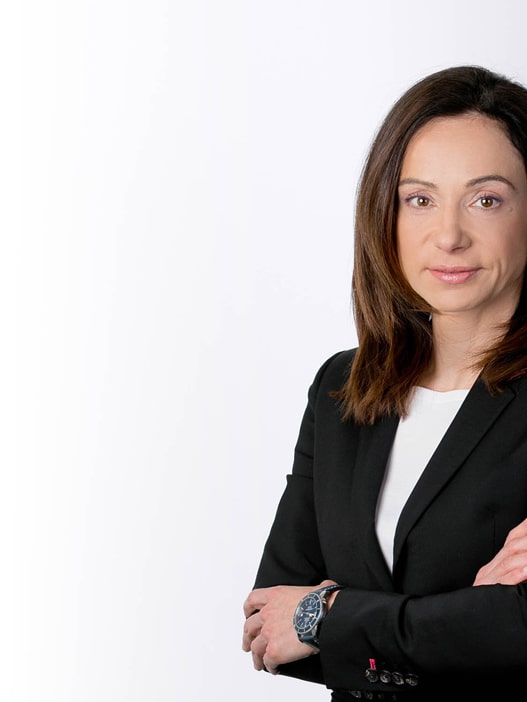New interpretative judgment of the Bulgarian supreme court of cassation on insolvency matters
On 03 December 2018, the Bulgarian Supreme Court of Cassation (“SCC”) published an interpretative judgement under case No. 1/2017 (the “Judgment”), where the Court provides long awaited guidance concerning insolvency proceedings. The Judgment addresses nine questions which were inconsistently resolved by lower courts. Bulgaria has been widely criticized for its inefficient and unreliable insolvency proceedings, but in the last couple of years both the legislator and the judiciary try to overcome the existing difficulties.
The Judgment is mandatory for all Bulgarian courts dealing with insolvency cases, the SCC aimed to streamline insolvency proceedings and to improve their predictability, speed and efficiency.
The SCC analyzed the following questions:
- What is the applicable procedural order to review applications for opening of insolvency proceedings?
- Which creditors with disputed receivables have to present “convincing evidence” in order to be allowed to participate at creditors meetings?
- Whether a new insolvency administrator may be appointed by the creditors before the first list of receivables is approved?
- Whether only written evidence or any type of evidence is admissible when reviewing objections against receivables included in the list of receivables by the insolvency administrator?
- Whether rulings refusing continuation of enforcement proceedings against the insolvent debtor to secured (privileged) creditors are subject to appeal?
- On which date starts the term to provide a recovery plan?
- Whether the ruling of the insolvency court rejecting to convene a creditors meeting is subject to appeal?
- May amounts received from the sale of secured property of the insolvent debtor be used to cover insolvency related expenses in case the amounts are not sufficient to satisfy the secured creditor?
- Who will obtain the property of the insolvent debtor after the insolvency proceedings are terminated and the insolvent company is deleted?
Below we briefly address some of the most important takeaways from the Judgment.
General procedural rules in respect of statements of claim do not apply in insolvency proceedings
The SCC ruled the typical exchange of statements and claims between the parties should not take place at the opening of insolvency proceedings. However, creditors should be provided with the possibility, within an additional term – usually 7 days, to clarify their application to participate in the initial stage of the insolvency proceedings. This approach provides a balance between the needed speed of the insolvency proceedings, and protection of the interest of creditors, ensuring technical mistakes shall no longer lead to exclusion of creditors claims from the initial stages of the insolvency proceedings.
Possibility for secured creditors to appeal refusals of continuation of enforcement proceedings
Under Bulgarian law, once insolvency proceedings are initiated most of existing enforcement proceedings against the insolvent company should be suspended. The interpretation of SCC of the provisions of the Commercial Act leads to limited protection of secured creditors, which initiated enforcement proceedings prior to the insolvency. If the insolvency court disallows the ongoing enforcement proceedings to continue, such ruling shall not be subject to appeal. However, the SCC stated that such creditors will still have the rights of all other creditors in the insolvency proceedings of the insolvent company and thus – no harm shall be caused if the rulings are not subject to appeal. Along with that limiting the appealable rulings will increase the speed of the insolvency proceedings.
Term for appeal against recovery plans
In our practice, we encountered cases where a recovery plan provided by the debtor was rejected simply on grounds that it failed to meet the deadline. In most cases such situation came from the fact that the initial date of the term was a disputable question. The SCC clarified that the term to provide recovery plan starts from the date when the additional list of admitted receivables is published in the Commercial Register. Therefore, all interested parties, i.e. debtor and creditors with admitted receivables will have the possibility to shape the adoption of a recovery plan.
Remaining property of the insolvent company goes to the state
One interesting interpretation of the SCC is that property of an insolvent debtor after completion of the insolvency proceedings and deletion of the company from the Commercial Registry shall go to the state/municipality, but not to former shareholders. This in practice will limit the incentive for shareholders to force a company into insolvency in order to avoid payment to creditors and at the same time keeping the possibility to retain some of the company’s assets.
Wolf Theiss comment
The interpretative judgement of the SCC provided much needed clarity in a number of procedural issues, which affect equally companies subject to insolvency and their debtors. However, parties should note that the insolvency process is much clearer and swifter. This is a positive development for companies doing business in Bulgaria and demonstrates the will for improvement. The Judgement brings stability to the insolvency process and brings much needed efficiency and greater predictability. In the coming months a new interpretative judgement is expected to address further inconsistencies of the existing insolvency rules, related to the status of the unclaimed receivables in cases where the insolvency proceedings are terminated due to insufficient funds of the insolvent company.
Read the full text

